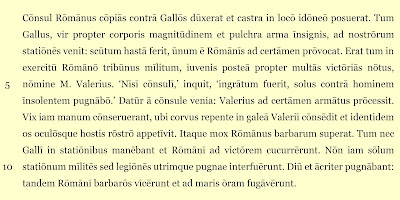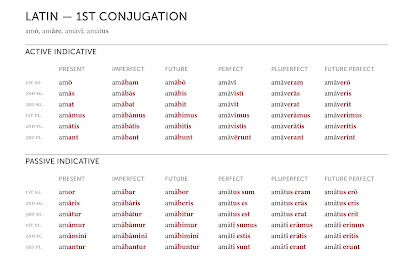There are four grammatical terms that are used when dealing with deponent verbs and it’s important not to misinterpret them.
“a verb that has a [i] passive form but an [ii] active
meaning”
[i] a passive verb: the subject of the sentence experiences the
action; the action is done to the subject e.g. This book was written by George
Orwell.
[ii] an active verb: the subject of the sentence performs the action
e.g. George Orwell wrote “1984”.
The distinction between [i] and [ii] is generally clear.
The next two terms also apply to verbs but look at those verbs from a
different point of view:
[iii] a transitive verb: a verb that must be followed
by a direct object to make sense:
- Could you please bring ¦ + some coffee? i.e. ‘bring’ alone is meaningless; it requires a direct object
- My son has caught ¦ + a cold.
[iv] an intransitive verb: a verb that cannot be followed by a direct object.
- That dog is always barking.
- The boy yawns in class all day.
- They’ll arrive on Tuesday.
[v] Some verbs can be either intransitive or transitive:
- She sings in that club every Saturday. │ The lady sings ¦ + the Blues in that club every Saturday.
- He left at 7pm. │ He left ¦ + some money on the table.
[vi] When we now apply these concepts to the Latin
deponent verbs the following can be stated:
loquor │ I am speaking
the verb is [i] passive in form (loquor) but
[ii] active in meaning (I am speaking) i.e. although the verb looks
passive, it is the subject that is performing the action
the verb is [iv] intransitive i.e. it is not
followed by a direct object
You will see that many deponent verbs are
intransitive:
- Sol oritur │ the sun rises
- Caesar ē castrīs proficīscitur │ Caesar sets out from the camp
- res ipsa loquitur │ the matter speaks for itself
- mortuus est │ he died
- Cūr īrāsceris? │ Why are you (getting) angry?
- Nox hīberna morātur │ the winter night lingers
Here are some more examples of deponent verbs from
the authors. Again, they are active and, in these contexts, intransitive.
[1] opīnor, opīnārī, opīnātus sum [1/dep]: suppose;
imagine; think
A deponent and passive verb in the same extract:
- Sed debebatur, ut opinor, fatis tantae origo urbis (Livy) │ But the beginning of such a great city, as I think / believe / in my opinion, was owed to the fates …
[2]
fateor, fatērī, fassus sum [2/dep]: confess
patior, patī, passus sum [3-iō/dep]: suffer;
endure; put up with
- pauper sum; fateor, patior; quod di dant fero. (Plautus) │ I am poor, I confess it -- I put up with it. What the Gods send, I endure.
[3] queror, querī, questus sum [3/dep]: complain
- hic qui verna natus est queritur (Plautus) │ this man who was born a slave is complaining
[4] luctor, -ārī, -ātus sum [1/dep]: struggle;
wrestle
- pars in gramineis exercent membra palaestris, contendunt ludo et fulva luctantur harena (Virgil) │ Some train their limbs on the grassy wrestling grounds, compete in sport, and grapple / wrestle on the yellow sand
But, as is often the case in Latin, just because a
large number of these deponent verbs are intransitive, you cannot say that all
deponent verbs are intransitive – that would be a non sequitur!
Some can act as transitive verbs:
- Agricola equum sequitur. │ The farmer follows the horse.
- Hostēs urbem aggrediuntur. │ The enemy are attacking the city.
- Pulchritūdinem puellae mīrāmur. │ We admire the girl’s beauty.
recordor, -ārī, -ātus sum [1]: recollect
- Sed ut iis bonis erigimur, quae expectamus, sic laetamur iis, quae recordamur. (Cicero) │ But just as we are elated by the good things which we are waiting for, so we are delighted by the things which we recollect.














